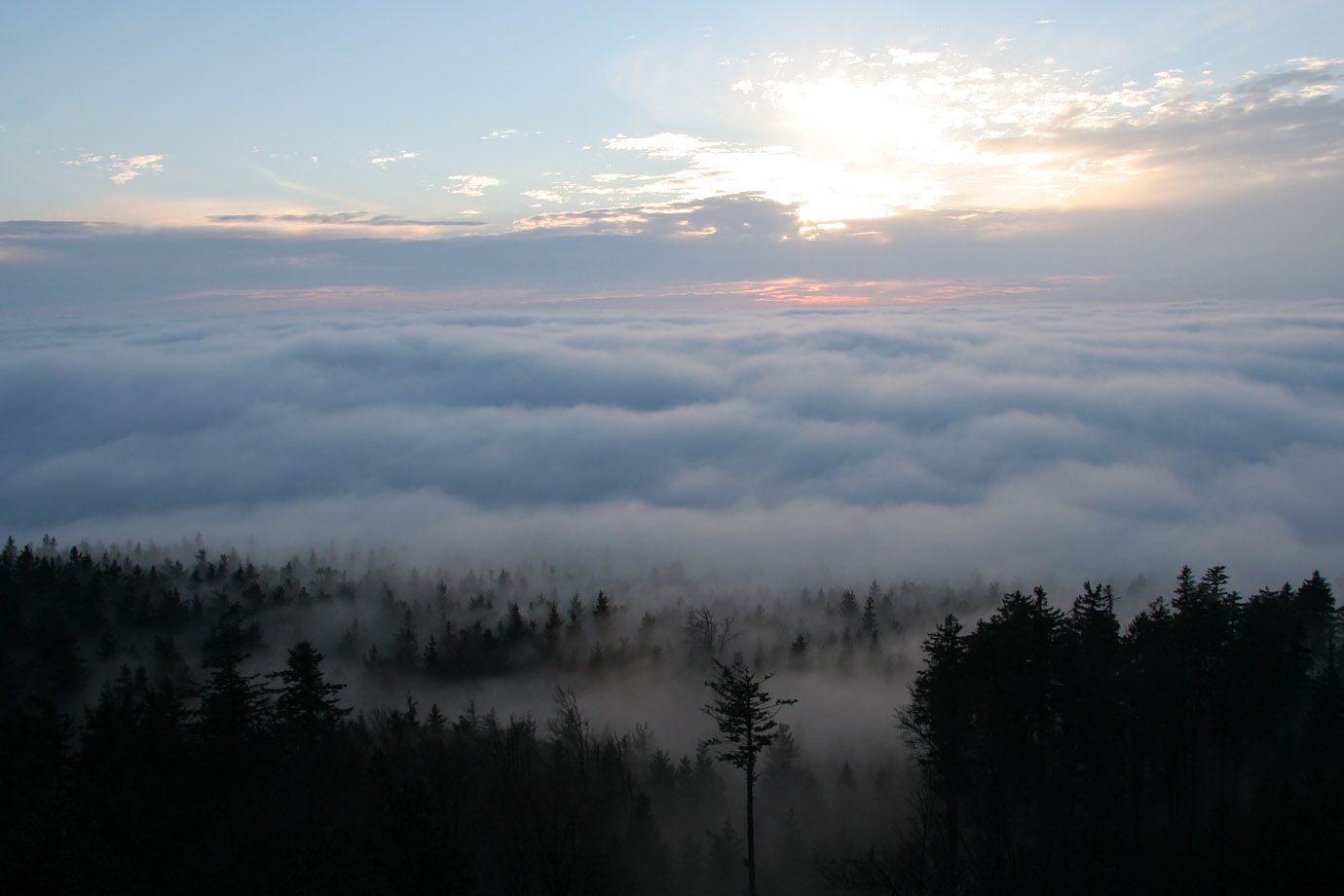
Fog
Fog is a collection of liquid water droplets or ice crystals suspended in the air at or near the Earth's surface. While fog is a type of stratus cloud, the term "fog" is typically distinguished from the more generic term "cloud" in that fog is low-lying, and the moisture in the fog is often generated locally (such as from a nearby body of water, like a lake or the ocean, or from nearby moist ground or marshes). Fog is distinguished from mist only by its density, as expressed in the resulting decrease in visibility: Fog reduces visibility to less than 1 km, whereas mist reduces visibility to no less than 1 km . For aviation purposes in the UK, a visibility of less than 2 km but greater than 999 m is considered to be mist if the relative humidity is 95% or greater - below 95% haze is reported.
The foggiest place in the world is the Grand Banks off the island of Newfoundland, the meeting place of the cold Labrador Current from the north and the much warmer Gulf Stream from the south. Some of the foggiest land areas in the world include Argentia, Newfoundland and Point Reyes, California, each with over 200 foggy days per year.
Source: en.wikipedia.org/wiki/Fog - 05.03.2012








